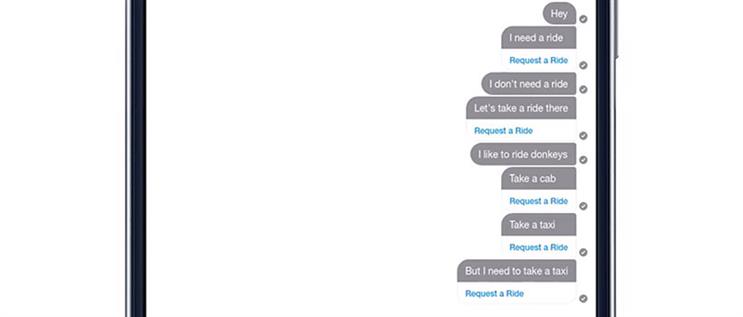The AI behind DeepText is truly impressive – it can scan 10,000 posts every second in 20 different languages with a "near-human accuracy" Facebook says, it can spot when people are looking to sell an item or when something is spam, and it is able to distinguish connections between words and slang, such as "bro" and "brother".
The major move from Facebook shows that AI is emerging as the next disruptive technology that will change every aspect of people's lives. It has the power to be as disruptive as the industrial revolution was.
For some years consumers have had the expectation that brand experiences are personalised and delivered in real time, via ubiquitous mobile phones. We now need to take this to the next level, using AI to create more intimate, deeper experiences. Ones that don't just fulfil needs but pre-empt them. This is exactly what Facebook showcases in its DeepText capabilities within Messenger.
DeepText is, Facebook promises, positioned perfectly to recognise when people are talking in Messenger about travel and needing a ride or taking a cab, for example. It knows when to ask people if they need to call a cab and when people are instead saying something along the lines of "I just took a taxi," and don't need to be offered a cab.
Another plus side to DeepText is what it will do for spam and comments, weeding out unwanted messages on comment threads so that people are served with the most relevant content to them.
But what DeepText really means is that Facebook will now be able to deeply understand how people chat with each other, how they talk about passion points, and how they talk about brands. It's to be expected that new ad units will emerge out of this model that will be the most organic and natural we've seen yet – a far cry from the shouty banners that people constantly screen out.
But despite the incredible progression this shows Facebook has made in its ability to understand its users and their wants and needs, it could spell trouble for some brands.
Recognising when people need a taxi versus them simply talking about having just taken a taxi, or recognising when a user is selling an object and serving them Facebook's sales tools to ensure the user will get an appropriate audience for their item, is something that could eat into already established brands' markets.
The Ubers, Craigslists and eBays of the world will need to be on board with these developments if they want to survive this particular revolution. But there's absolutely no reason this shouldn't be able to make this happen, as DeepText will be able to unlock new and interesting ways for brands and their content to be weaved into everyday conversation.
Omaid Hiwaizi is the president of global marketing at Blippar.


